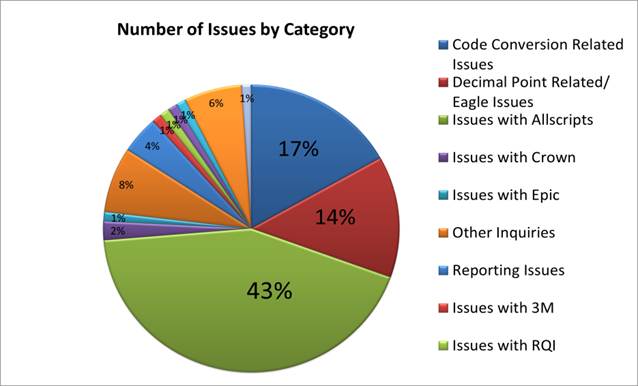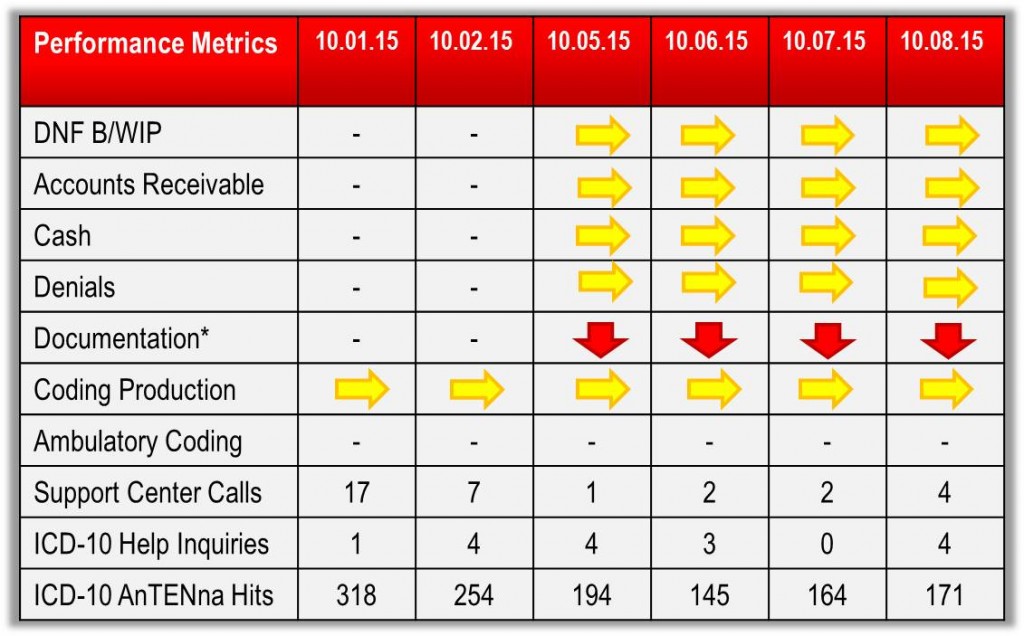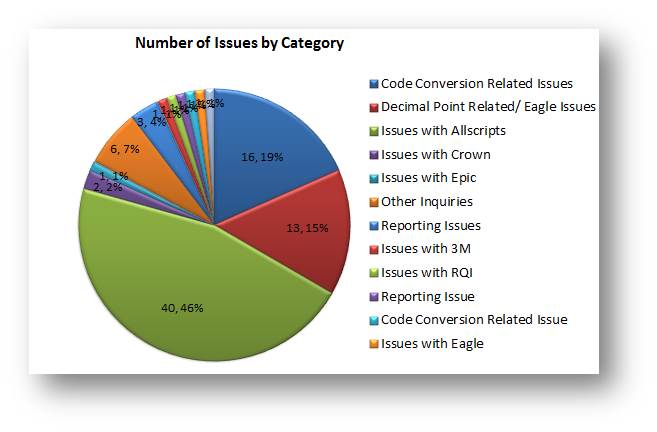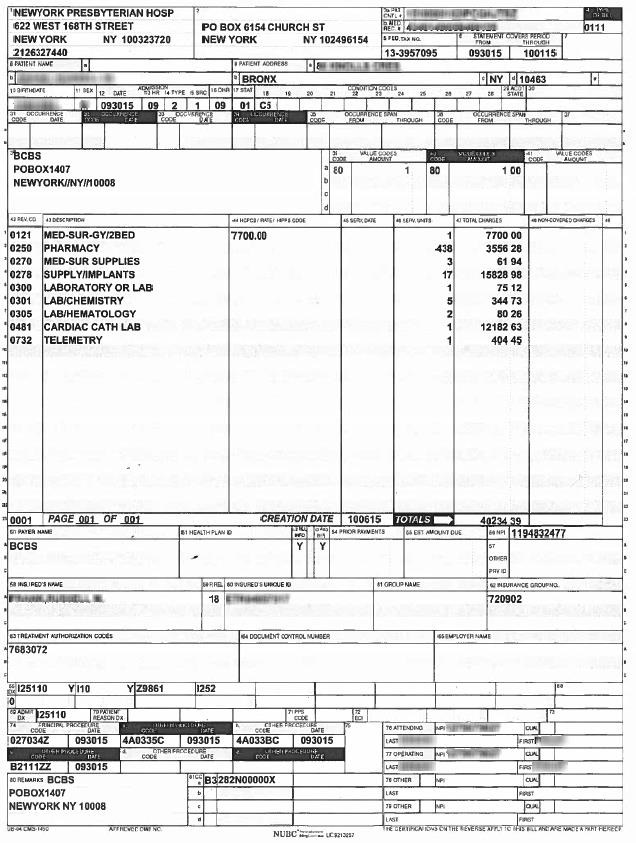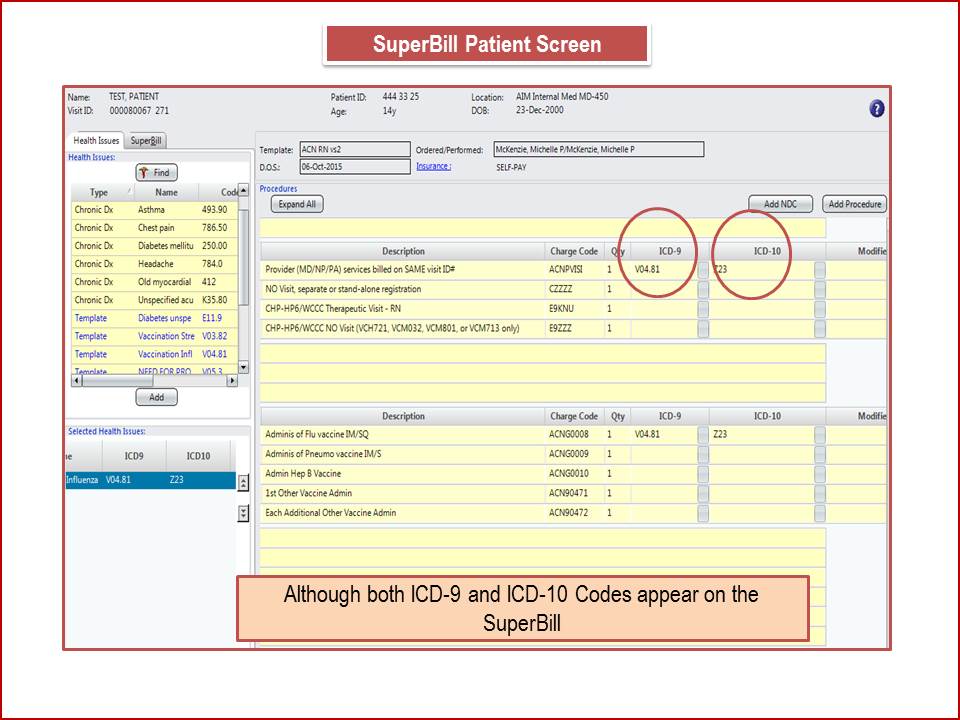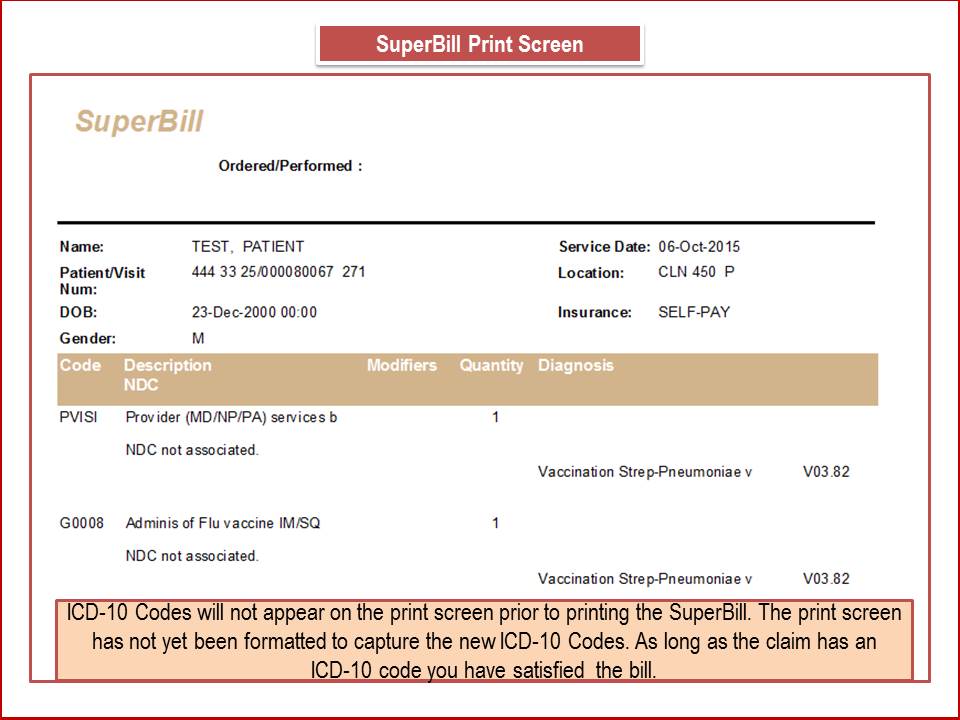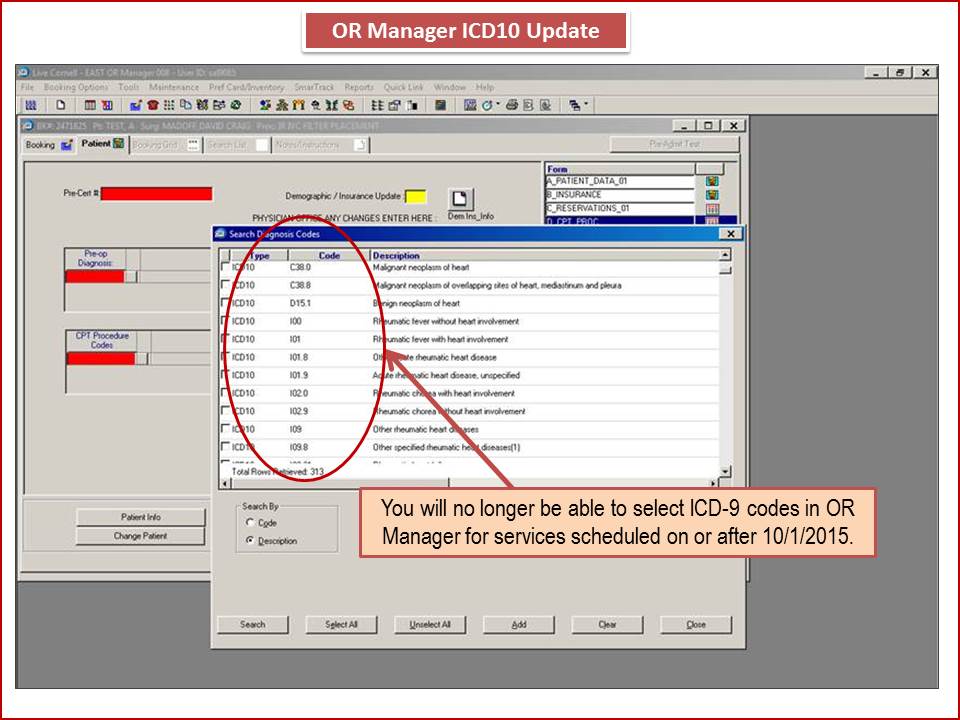SUMMARY OF EVENTS
Day 12 of the implementation welcomes yet another accomplishment in the transition, that is, the billing of outpatient encounters. All totaled, the six campuses of NYP submitted more than 4,500 ambulatory surgery, emergency department, hospital-based clinic, and other outpatient encounters to third party insurance carriers, all using ICD-10 codes. Inpatient billing has been fully resolved of remaining technical items and the outstanding batch of October 1 discharges have similarly been submitted. Coding production remains stable and erroneous use of ICD-10 codes continues to dwindle. The implementation has been largely devoid of any issues of significance and smaller items crossing the spectrum of IT, operations, and education and awareness continue to be resolved through collaboration of the ICD-10 Support Center, Information technology Services, staff and providers. An ongoing summary of the project is listed below and the full presentation can be found here.
OVERALL IMPACT
The impact of the ICD-10 transition on patient care/patient experience activities continues to remain minimal. Financial and operating metrics remain largely stable indicating that the transition to ICD-9 has not necessarily impacted our or the insurance industry’s ability to continue processing in ICD-9. The temporary increase in the unbilled receivable has subsided though not completely and Support Center Staff are evaluating any relation to ICD-10 specific anomalies. Documentation Improvement specialists in HIM continue to generate increased volumes of provider inquiries in an effort to take advantage of the specificity available in ICD-10.
ITEMS TO BE RESOLVED
The previously reported interface/file extract issue with R4, an OB-GYN application at Lower Manhattan has been confirmed in which codes were being truncated due to insufficient field length. IT is collaborating with the Support Center to resolve this batch of encounters. An erroneous code file issue with ICD-10 code dictionaries resulted in some incorrect mappings of certain diagnoses as external cause of injury codes, resulting in claim submission errors. Impact was less than 100 claims and has similarly been resolved. An updated implementation issues log can be found here.
SUPPORT CENTER ACTIVITY
Staff received 3 phone calls and 2 e-mail inquiries while correcting approximately 300 additional outpatient encounters erroneously assigned ICD-9 codes. In total, the Support Center has logged 95 issues and 18 remain open. Implementation alerts and ICD-10 transition aids have been developed and deployed for closing outpatient encounters and correction of unmapped health issues. The monitoring and auditing effort has resulted in verifying more than 99% data integrity for Inpatient, Ambulatory Surgery, and ED encounters. The ICD-10 AnTENna website recorded an additional 181 hits.
REMEMBER
- ICD-10 Diagnosis Codes are 3 – 7 characters, alpha-numeric, and ALWAYS begin with a letter
- ICD-10 is date of service/date of discharge sensitive
- DO NOT insert decimal points when entering ICD-10 diagnosis codes in Eagle
- Use ICDx to assist with documentation efforts in Sunrise Clinical Manager (SCM)
- Correct old health issues by clicking the health issue, selecting ‘update preferred mapping, select the ICD-10 code, and clicking ‘Accept”
HELP
For continued assistance and inquiry, please call the ICD-10 Support Center at 646-NYP-9-2-10 (646-697-9210), e-mail ICD-10Help@nyp.org, or visit the ICD-10 AnTENna webiste.

